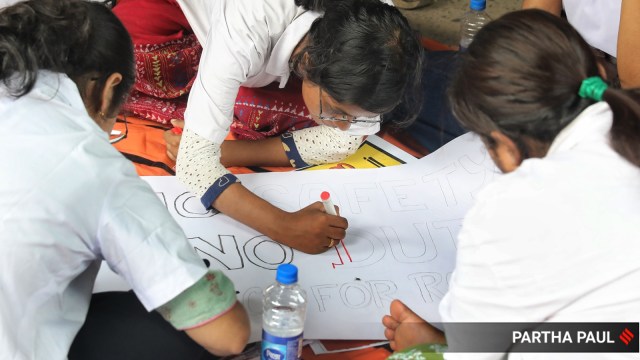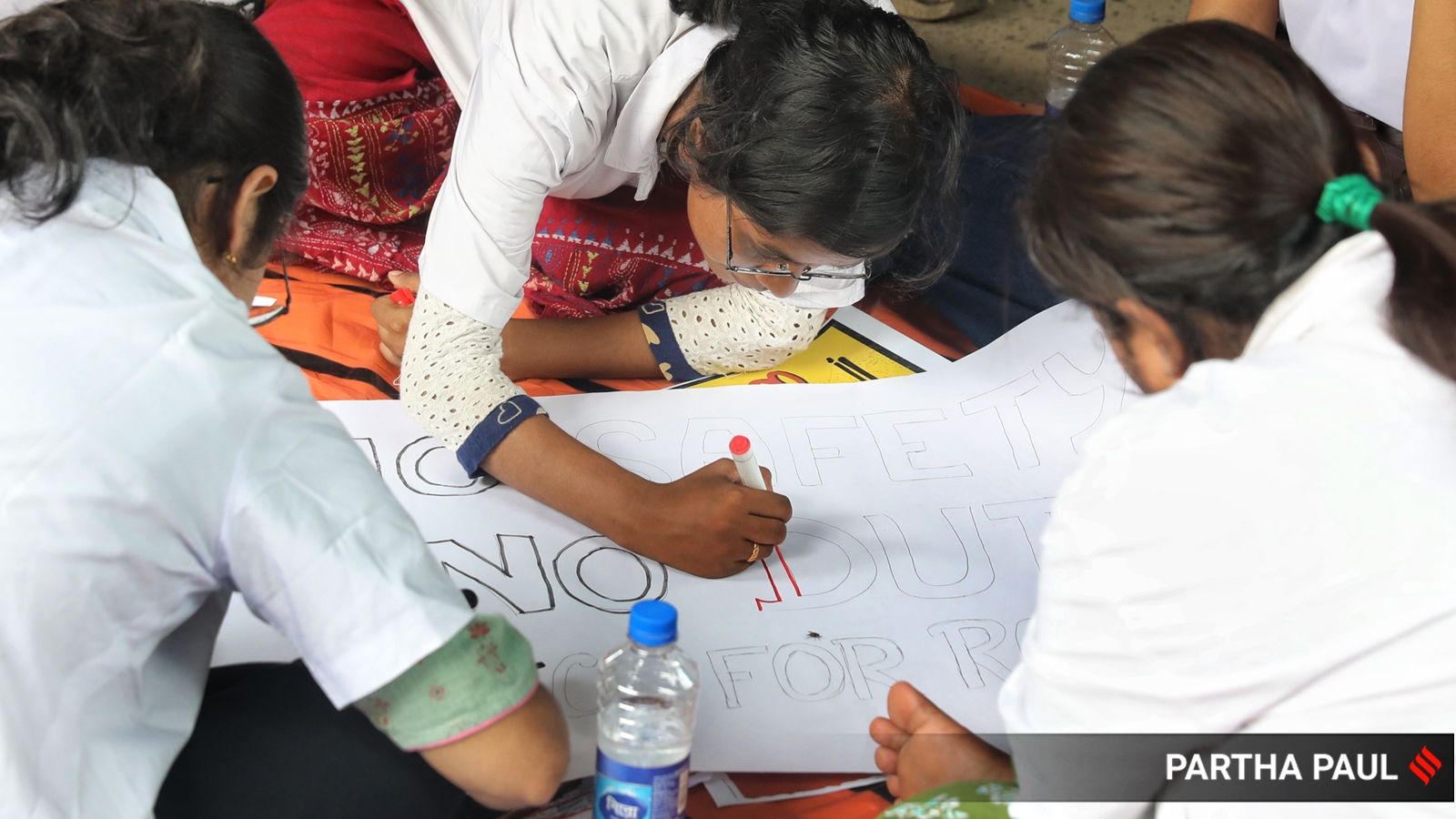
India is once again raging against a brutal rape and murder, this time of a 31-year-old PG resident doctor in Kolkata. Protests have erupted in several cities, demanding justice, in some places being led by women themselves. The purpose of this article is to deconstruct the public response in contemporary India when a gruesome killing like this comes to light, and hopefully, in the process, convey why it is important to examine public discourse with a critical lens.
Whenever a case like this emerges, the protests often focus on the crime as a singular incident. In trying to locate the crime in an individual or a group of perpetrators, and demanding that they hang, or even more alarmingly, that they be subjected to extrajudicial killing or mob justice, we lose sight of the fact that most rapes also happen because the perpetrators are structurally enabled and protected in myriad, complicated ways. We forget that simply killing the culprits is not enough to stop rapes from happening. In trying to decry “political agendas” from overtaking civilian protests, we lose sight of the fact that rapes are inherently political, inherently about exercising power and dominion by violating another person’s body against their will. Rapes are crimes of power, not lust. Power, unlike lust, is located in systems and not just individuals.
In this instance, the victim was at her workplace. By the stipulation of the Vishakha guidelines, it was her institution’s responsibility to provide her with a safe environment. Even as the CBI investigates the case, there is very little focus on the massive failure of the institution to provide her with the safety that was her fundamental right in her place of work. Questions need to be asked about why, despite provisions of the law, no mechanism existed at the RGKMCH that could have prevented this rape and murder. Why was there no security nor surveillance of the ward at night? There needs to be a careful examination of the status, functioning and roles of bodies like Internal Complaints Committee( ICC) or Committee against Sexual Harassment (CASH) at RGKMCH and other government hospitals, and to ensure that the members on these committees are adequately trained and sensitised on the provisions of the POSH Act. Already the CASH committee at RGKMCH lists the ex-principal as a member, which is a violation, as the principal is an administrator of the institution.
Yes, we must ask for justice, that the culprits be identified, caught and punished in a court of law, in a timely manner. However, there are other things that should also be asked for. We need to hold the powers at the helm, institutional and governmental, responsible and accountable for this crime. We need to question why local media disclosed the victim’s identity with complete impunity from the outset. We need to question why the administration is so scared of public dissent that they banned public gatherings at various locations throughout the city, citing law and order situations, when most of the protests are peaceful. We need to criticise the government policies that limit women’s duty in night shifts, rather than ensuring their safety. This particular directive is worrying because rash policymaking like this often creates more discrimination at the workplace and discourages the hiring of female staff.
Most importantly, we need to do some serious soul searching as to how each of us is complicit in the mechanisms and structures that enable and perpetrate gender crimes, silence the victim and refuse to hear the voices of the survivors. We need to understand that rapes are enabled, and the suffering of the survivors is routinely minimised by a toxic, rape-permissive culture that revels in rape humour and objectification of women. There is no gallantry in walking in a protest of this kind, appropriating women’s voices and agenda in the process, and going back to work next day with the same old set of rape jokes. There is only duplicity in walking in these protests screaming for justice if you’ve abused your partner at any point. There is no authenticity in naming a victim with glorious pseudonyms that bring forth notions of courage or beauty, with words like Abhaya or Tilottama, that undermine her horror and suffering.
There is no merit in asking women to arm themselves or train themselves to fight and learn martial arts to protect themselves. This particular line of logic is deeply flawed as it once again recuses society from providing security and puts the responsibility on an individual to safeguard themselves. As most survivor testimonies and expert validations have shown, even women who are so trained cannot always defend themselves because of many different factors, from the evolutionary response of freezing, to simply being overpowered by the number of attackers. If this is allowed to become a dominant discourse, ultimately it will just add another weapon to the overflowing arsenal of victim blaming to minimise their lived experiences of rape and horror.
The day the news broke, I received an anguished text from one of my PhD students, a passionate researcher whose work is on investigating attitudes, norms and belief systems that contribute to rape-permissive worldviews. Among other things, she expressed a sense of futility towards her own research, given the situation surrounding the incident. While I fully shared her anguish, rage, and frustration, I had to remind myself of a simple truth. Women and other marginalised groups have always had to fight for every single right we take for granted today, from laws against rape to basic rights at home and work. If we consider ourselves to be serious about effecting any change, we simply cannot afford to stop our work in despair or lose hope. And that is what I told her.
In the history of women’s movements, each small step forward has been the result of months, if not years, of struggle by hundreds or thousands of people. We would do well to remember that their purpose was very much political. Similarly, if this public rage is to be channelised to enable meaningful action, it won’t happen by sanitising the protests from politics in the long run.
The writer is professor of psychology at Ashoka University. Views are personal
© The Indian Express Pvt Ltd
First uploaded on: 19-08-2024 at 16:32 IST



